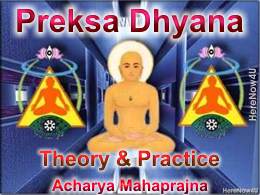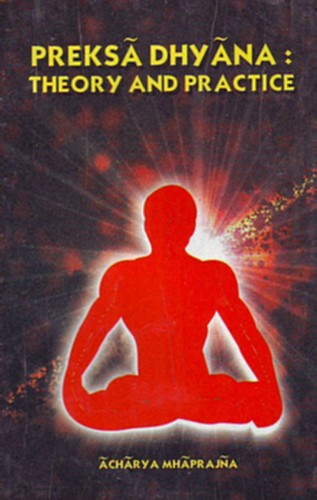[raison d'etre = reason or justification for existence]

The essence of contemplative meditation is, first, to get rid of one's traditional belief and superstitions and then perceive and experience the principles of eternal truth. The raison d'etre of contemplation (anupreksa) in the system of Preksa Dhyana is to abolish the myths, legends and superstitious beliefs and to realize and accept what is really true. Thus the main objective of contemplative meditation is to replace ignorance and superstitions by knowledge and wisdom. It is a process of realizing the truth and adhering to it.
Without practicing contemplation it would be very difficult to grasp the essence of meditation i.e. it would not be easy or effortless to practice meditation. Contemplation is a ladder, which facilitates ascending to higher levels of consciousness. Without mounting this ladder one is unlikely to ascend the heights of perceptual meditation. Thus, both are concomitant. Contemplation (anupreksa) both precedes and succeeds concentration of perception (preksa). Preksa and anupreksa are but two states of the same consciousness. When fluid water solidifies, it becomes ice: basically both are same as there is no substantial difference. Ice has its use and value but water has also its own importance; by becoming fluid, it does not lose its importance. Similarly anupreksa is fluid state of the consciousness. It flows in a regulated canalized way. When the fluid solidifies i.e. concentrates on a single point, it becomes dhyana. Before it attains a solid state and steadiness, and remains revolving around the central theme, it is contemplation (anupreksa).
It is essential to obtain right answers to many questions. To contemplate on a single query (at one time) is a process for finding a suitable and true answer and is called Vicaya Dhyana (contemplative meditation). To dispel ignorance by acquiring knowledge, to know the unknown and to realize the truth, one must think and concentrate one's thought-process on a single object or idea. When the flow of consciousness is controlled and becomes unidirectional
(Just as flow of water is canalized), proper answers are discovered and ignorance is replaced by knowledge. Until one becomes competent and adept for meditating, contemplation and reflection are the only tools to search the reality. Similarly a practitioner of meditation is often faced with many problems. If one is not able to resort to contemplation, he may become confused. Some prescribe that for a practitioner of meditation, reading, thinking, contemplating and reflecting become distractions and should, therefore, be abandoned. One cannot disagree with this formula but total freedom from thought is not an easy achievement.
 Acharya Mahaprajna
Acharya Mahaprajna

